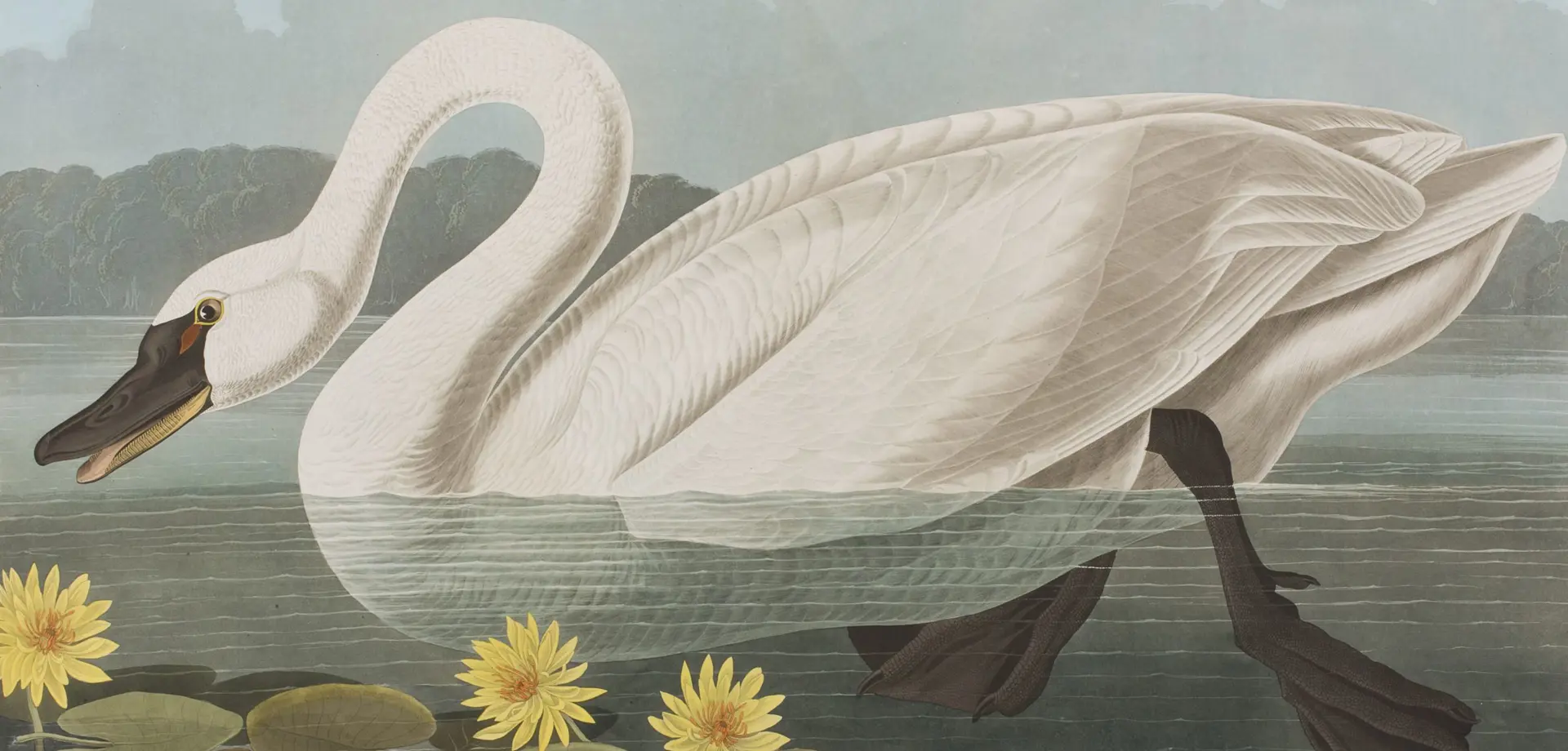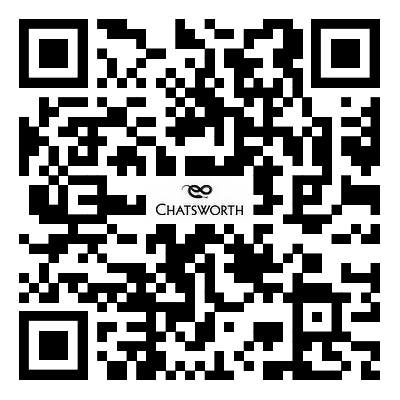John James Audubon (1785-1851) was an American ornithologist, naturalist and painter, who formed an ambitious plan to publish a book depicting all the birds of North America. Having struggled to realise this project in America, he travelled to the UK in 1826, where he met Robert Havell Jr. who agreed to become his publisher. Funds were raised by subscription and the book was published in 87 parts between 1827 and 1838.
The 435 plates show life-size depictions of each bird, and the volumes are known as 'double elephant folio' due to their huge size (approximately 1m x 70cm). Audubon’s original watercolour paintings were used as the basis for the hand-engraved copper plates from which the images were printed; colour was applied by hand at the end of the process. No more than 200 complete sets of this work were ever issued, and the volumes held at Chatsworth are in very fine condition.
However, while Audubon's work has been much admired since his lifetime, his legacy is deeply problematic. He bought and sold enslaved people, and opposed the abolition of the slave trade. On some of his expeditions to secure bird and animal specimens, he also stole the skulls of Indigenous peoples which were added to the collection of Samuel George Morton - a physician and scientist who developed a theory of racial hierarchy based on craniology, arguing that Caucasians were more intelligent than other races.
Audubon's work has made a great impact, but it is important to acknowledge the racism and unethical practices that sit behind it.
Read about The Devonshire Group's ongoing academic research into archival links with colonialism on the Devonshire Group website.



